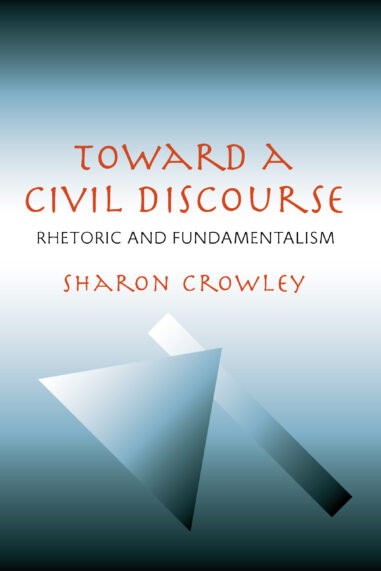Toward a Civil Discourse examines how, in the current political climate, Americans find it difficult to discuss civic issues frankly and openly with one another. Because America is dominated by two powerful discourses–liberalism and Christian fundamentalism, each of which paints a very different picture of America and its citizens' responsibilities toward their country-there is little common ground, and hence Americans avoid disagreement for fear of giving offence.
Sharon Crowley considers the ancient art of rhetoric as a solution to the problems of repetition and condemnation that pervade American public discourse. Crowley recalls the historic rhetorical concept of stasis–where advocates in a debate agree upon the point on which they disagree, thereby recognizing their opponent as a person with a viable position or belief. Most contemporary arguments do not reach stasis, and without it, Crowley states, a nonviolent resolution cannot occur.
Toward a Civil Discourse investigates the cultural factors that lead to the formation of beliefs, and how beliefs can develop into densely articulated systems and political activism. Crowley asserts that rhetorical invention (which includes appeals to values and the passions) is superior in some cases to liberal argument (which often limits its appeals to empirical fact and reasoning) in mediating disagreements where participants are primarily motivated by a moral or passionate commitment to beliefs.
Sharon Crowley examines numerous current issues and opposing views, and discusses the consequences to society when, more often than not, argumentative exchange does not occur. She underscores the urgency of developing a civil discourse, and through a review of historic rhetoric and its modern application, provides a foundation for such a discourse-whose ultimate goal, in the tradition of the ancients, is democratic discussion of civic issues.


